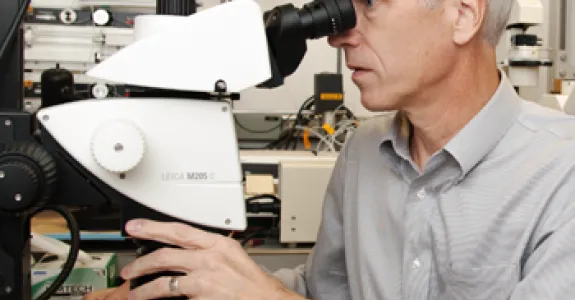
Bio-X Affiliated Faculty
Dr. Brian Kobilka's laboratory is involved in studying several aspects of adrenergic receptor biology. Adrenergic receptors form the interface between the sympathetic nervous system and the cardiovascular system and play a critical role in the regulation of cardiovascular function. Specific projects include:
- Receptor Structure: The Kobilka lab is interested in understanding the three dimensional structure of adrenergic receptors and learning about the conformational changes that mediate signal transduction. They are taking several experimental approaches including mutagenesis, biochemical, and biophysical studies.
- Intracellular trafficking of adrenergic receptors: The function of receptors can be modulated by changes in receptor structure (phosphorylation) and by changes in subcellular localization. The Kobilka lab is using immunocytochemical approaches to study the targeting of receptors to specific subcellular domains and agonist mediated redistribution of receptors. Their goal is to determine the functional significance of differences in targeting and trafficking that they have observed in several adrenergic receptors, and to identify cellular proteins that mediate receptor trafficking.
- Physiologic relevance of adrenergic receptor subtype diversity: Multiple closely related subtypes of adrenergic receptors have been identified through cloning studies. The lab is using targeted gene modification in mice to study the physiologic role of these closely related subtypes. They have disrupted the genes for five adrenergic receptors (alpha 2a, alpha 2b, alpha 2c, beta 1, and beta2) and are investigating the consequence of these disruptions on neural and cardiovascular physiology.







